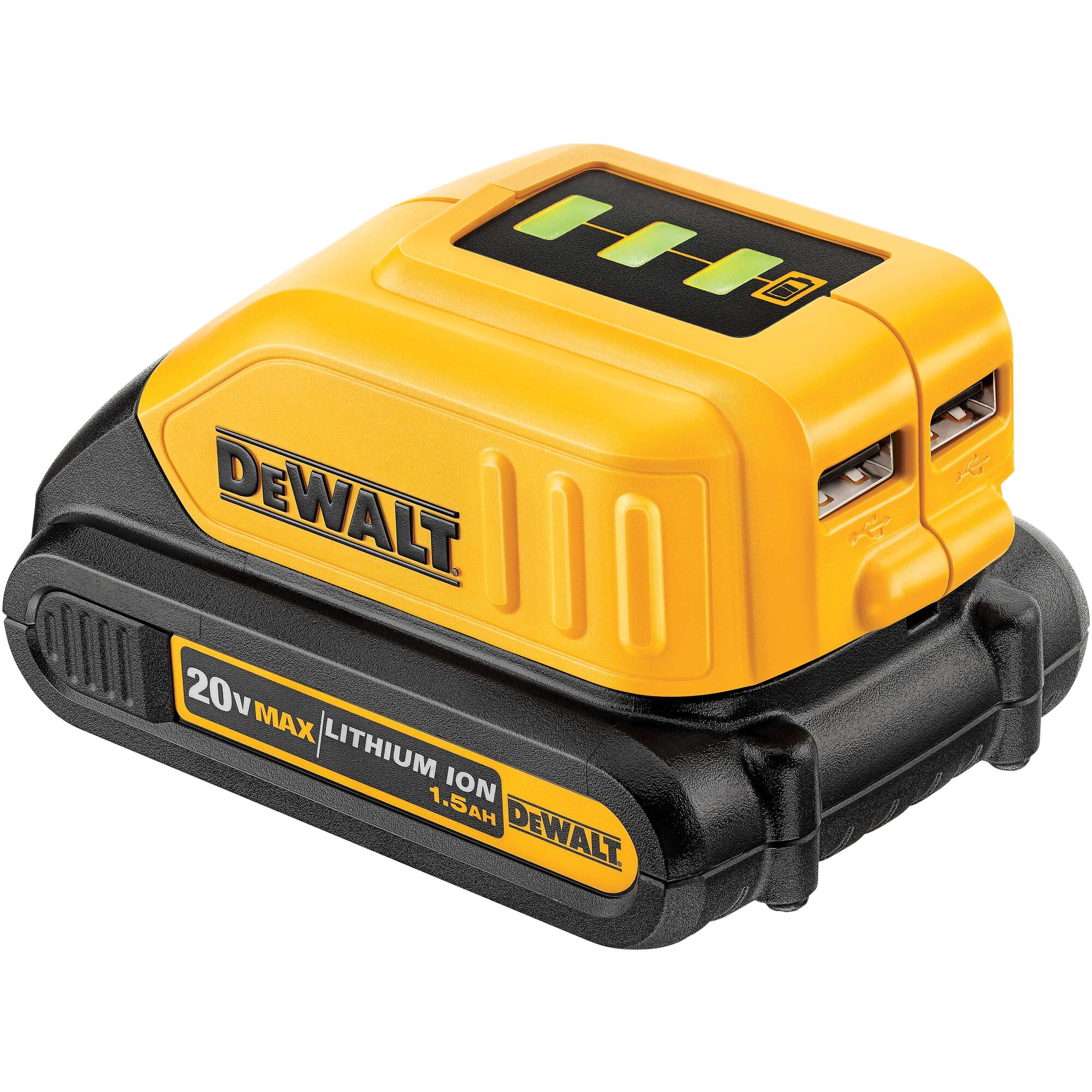I totally get what you mean, that you don't want to be tied to a certain brand/make. There are some options for adapters;
If you end up getting an adapter or two, make sure as to
NOT go with a cheap China knock off. They'll fry either your battery or your tool. Read ALL of the reviews for any that you consider getting.
FYI, I'm a DeWalt and Milwaukee owner.
There are still a few things to consider when shopping for cordless tools;
1. Weight.
This is a big one for me. Around the house, or if I'm doing something overhead, I don't need a heavy tool. So I have some Milwaukee M12 tools. When I'm outdoors away from a power source, I use my DeWalt 20v tools and take as many batteries with me as I think I'll need to get the job done.
The Milwaukee batteries rarely need charging up if they've been sitting for months. But I typically top one or two up when I'm planning on doing some around the house chores.
2. Volatge.
This is the next important thing to consider. The amount of voltage determines how much power your tool is going to have. My Milwaukee M12 impact driver CAN NOT compare to my DeWalt 20v impact driver. The DeWalt just has so much more torque than the Milwaukee.
Having said that, some tools are coming out with what's called "flexvolt". The tools can run off two different voltage batteries. One of note is the DeWalt 20/60 flexvolt. Bigger, heavier, more power and longer run time. They can run larger tools like yard tools (leaf blower, trimmer, edger, lawnmower, as well as table saw, etc....).
3. Amp Hours.
Another useful thing to consider. This will determine how long your tool will run. A 5ah battery will almost last double a 3ah battery. But the weight of the higher amp hours will be considerably greater.
4. Available tools.
This can vary considerably from manufacturers. Go to their website to see everything that they have available for a certain battery type. If they make everything you are looking for, then they're probably the preferred manufacturer. It all depends on what types of tools you're going to need.
For charging my batteries when I'm nowhere near a power source, I typically use a generator and charge as many as I can at once. I'll use all of my battery chargers and run my generator for a couple of hours. I've never tried using a Jackery or similar. A while back, I had read that charging batteries from batteries (ie. a Jackery) you loose a lot of the power. That's why I've always used a generator instead. I have no power out at the cabin, and that's typically where I'm doing lots of work that my cordless tools are needed.
Having said all of that, I do have an adaptor for my DeWalt 20v batteris that can charge up anything from a USB port. It charges my phone and tablet QUICKLY!!! Here's a link if you wanted to check it out;
Power electronic devices on and off the jobsite with the DCB090 12V/20V MAX* USB Power Source. Featuring extreme durability and (2) USB ports for simultaneous charging, this product is essential for long days on job.

www.dewalt.com
My next tools are going to be the DeWalt Flexvolt yard tools. I'm getting sick and tired of having to clean the carburetors on my leaf blower and trimmer because all gas stations sell an ethanol blended gasoline that F*cks everything up.
Eventually I can see myself converting to a battery powered lawn mower....but they're still too new. The manufacturers need to work out the kinks with them. I see way too many of them being given away because the batteries have crapped out.
